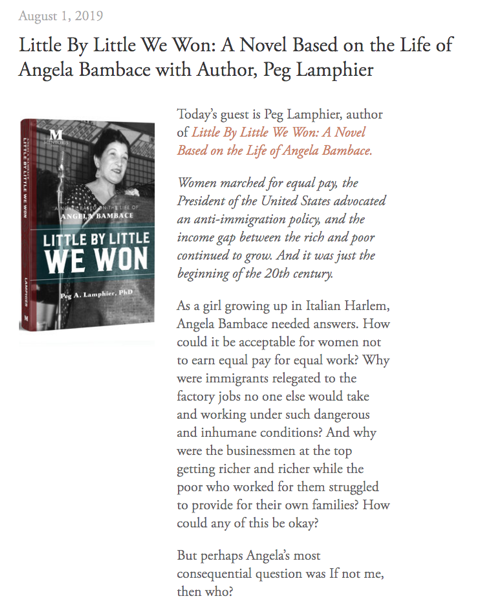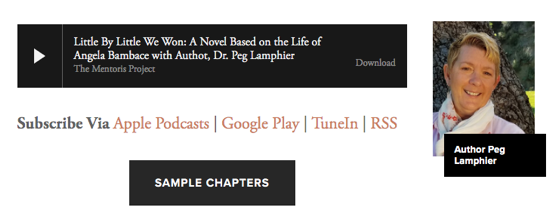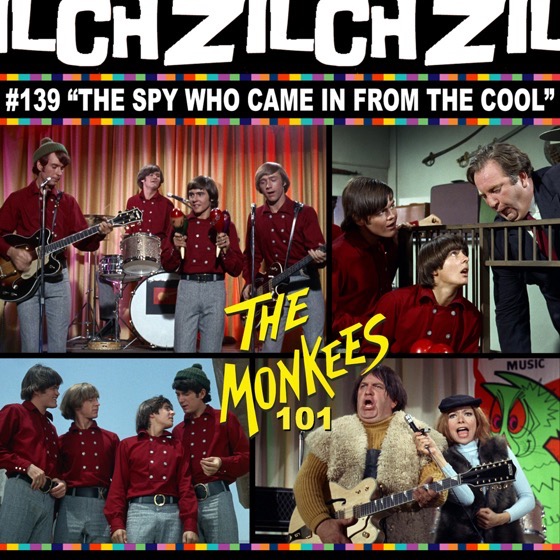Part of the California State University, Fullerton Faculty Noon Time Talks at the Pollak Library.
Watch this entire presentation
Transcript:
Some people recognize or have heard if you know anything about aviation history, Harriet Quimby was the first pilot — female pilot — licensed in the United States. To pay for her flying lessons she wrote screenplays for the Biograph Company. So there was a new world. A new place to make money and women were jumping in that world if it was possible. So I always thought was pretty cool. Jeanie MacPherson is probably one of my favorite early film screenwriters and she is the perfect example of how women get left behind. Everybody who does film history has heard about Cecil B. DeMille over and over and over again. Brilliant. Brilliant. Brilliant. If you look at his films, all the films he made, that made a profit, were written by Jeanie MacPherson. When they stopped working together, he never made a profitable film again. So are they Cecil B. DeMille films or are they Jeanie MacPherson films or are they Macpherson/DeMille films?
Dr. Rosanne Welch discusses the women in her new book “When Women Wrote Hollywood” which covers female screenwriters from the Silents through the early 1940s when women wrote over 50% of films and Frances Marion was the highest paid screenwriter (male or female) and the first to win 2 Oscars. Yet, she fails to appear in film history books, which continue to regurgitate the myth that male directors did it all – even though it’s been proven that the only profitable movies Cecil B. de Mille ever directed were all written by Jeannie Macpherson film ever won for Best Picture was written by Robert E. Sherwood (who people have heard of, mostly due to his connection to Dorothy Parker) and Joan Harrison.
Buy a signed copy of when Women Wrote Hollywood
Paperback Edition | Kindle Edition | Google Play Edition
* A portion of each sale from Amazon.com directly supports our blogs
** Many of these books may be available from your local library. Check it out!
† Available from the LA Public Library
Podcast: Play in new window | Download
Subscribe: RSS
![14 Quimby and MacPherson from “When Women Wrote Hollywood” with Dr. Rosanne Welch [Video] (1 minute 2 seconds)](https://rosannewelch.com/wp-content/uploads/2019/08/csuf-rmw-w3h-14.jpeg)
![11 Alice Sheldon from The Sisterhood of Science Fiction with Dr. Rosanne Welch [Video] (51 seconds)](https://rosannewelch.com/wp-content/uploads/2019/08/scifi-rmw-cpp-11.jpeg)















![13 Alice Guy Blaché & Fictional Filmmaking from “When Women Wrote Hollywood” with Dr. Rosanne Welch [Video] (52 seconds)](https://rosannewelch.com/wp-content/uploads/2019/07/csuf-rmw-w3h-13.jpeg)
![10 Virginia Woolf and Orlando from The Sisterhood of Science Fiction – Dr. Rosanne Welch [Video] (48 seconds)](https://rosannewelch.com/wp-content/uploads/2019/07/scifi-rmw-cpp-10.jpeg)
![12 Alice Guy Blaché from “When Women Wrote Hollywood” with Dr. Rosanne Welch [Video] (58 Seconds)](https://rosannewelch.com/wp-content/uploads/2019/07/csuf-rmw-w3h-12.jpeg)
![09 Mary Shelley, Her Life, And Fiction from The Sisterhood of Science Fiction – Dr. Rosanne Welch [Video] (47 seconds)](https://rosannewelch.com/wp-content/uploads/2019/07/scifi-rmw-cpp-09.jpeg)
![11 Women Writers You Don’t Know from “When Women Wrote Hollywood” with Dr. Rosanne Welch [Video] (35 seconds)](https://rosannewelch.com/wp-content/uploads/2019/07/csuf-rmw-w3h-11.jpeg)
![8 Assumptions That A Man Did The Work from The Sisterhood of Science Fiction – Dr. Rosanne Welch [Video] (31 seconds)](https://rosannewelch.com/wp-content/uploads/2019/07/scifi-rmw-cpp-08.jpeg)


